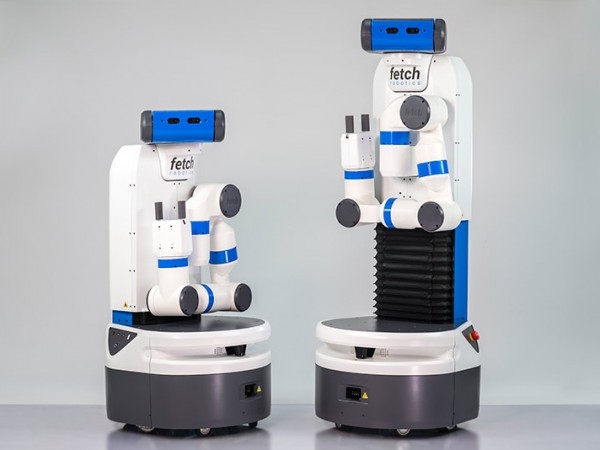Musk's injection-manufactured robot steward was originally like this

OpenAI is working to make warehouse robots do housework for you.
OpenAI is an artificial intelligence non-profit organization jointly established by many Silicon Valley tycoons such as Elon Musk. Inside the mysterious OpenAI, some warehouse robots are learning how to perform housework.
At the beginning of its founding, OpenAI was only for artificial intelligence research. Now it is reprogramming robots produced by Fetch Robotics. Fetch Robotics is a company that provides automated warehouse equipment. The research conducted by OpenAI is to equip these robots with software to enable them to learn independently.
OpenAI's research reflects that instead of breaking through the hardware, innovations in software and machine learning can better enhance the capabilities of the robot. A series of warehouse robots provided by Fetch Robotics includes a robot system that can follow the worker's travel around the factory. The system can transport items to the designated locations. The system used by OpenAI is based on a mobile base station and is equipped with a 3D depth sensor, a 2D laser scanner and a 7-DOF robotic arm.
After intensive learning, Fetch Robotics robots can complete some housework.
As early as April, OpenAI also included Professor Pieter Abbeel. Professor Pieter Abbeel is the chief expert in machine learning at the University of California, Berkeley. Prof. Abbeel showed that robots can learn some hard-to-program movements through a machine learning method called deep reinforcement learning, such as stacking towels and taking things from the refrigerator. DeepMind, a subsidiary of Google that specializes in artificial intelligence, also uses this method to make computers play computer games to an extraordinary level.
Professor Abbeel's robot learning project starts from scratch. Professor Abbeel built a neural network to receive the built-in sensor signals to control the movement of the robot. The neural network can adjust its own parameter settings little by little, and it can perform the set actions directly. For example, robots may crawl thousands of times while learning how to grab a given target.
"Once this goal is achieved, the economic benefits and industrial benefits it brings can't be ignored," said Marc Deisenroth. Marc Deisenroth is an expert in machine-enhanced learning at Imperial College London. "Imagine how robots can not only wash floors, but also wash dishes, iron clothes, wipe windows, and cook for breakfast."
Deisenroth said that (updating software updates) existing robots can reduce the cost of use. "Currently, software seems to be a thorny issue," he added. "However, apart from this issue, upgrading the software can bring about improvements in robot performance," he said. It is like a flexible manipulator and a flexible foot similar to a monkey's foot. This concept is also a study. The subject that the person is studying.
Some manufacturers, including Japan's Fanuc, are also using reinforcement learning methods to train factory robots so that robots can quickly adapt to new tasks, such as letting them grab unfamiliar objects. When the robots are trained together, their training time will be shortened accordingly.
Jens Kober from Delft University of Technology in the Netherlands is an expert in robot learning. He pointed out: “Transforming robots from manual programming to giving robots the ability to learn autonomously is an important part of the future of robotics.†He also pointed out that It is also important to be able to share what you have learned.
Although robots like Fetch Robotics have already entered many factories and warehouses, home robot butlers still remain in science fiction. Allowing a machine to perform seemingly simple tasks such as washing dishes, folding clothes, or cleaning up rooms is still a very difficult task. Robots programmed in the traditional way can be paralyzed in the face of an unfamiliar object or slight changes in light.
OpenAI confirmed that they are working with Fetch Robotics but declined to comment.
OpenAI was founded by Elon Musk and other Silicon Valley tycoons. These investors promised to inject $1 billion into non-profit organization OpenAI, led by Ilya Sutskever and Greg Brockman. OpenAI promises to bring this technological achievement into the millions of households. This not only benefits the companies of Elon Musk and Peter Thiel, but also benefits the companies that were born out of Y Combinator.